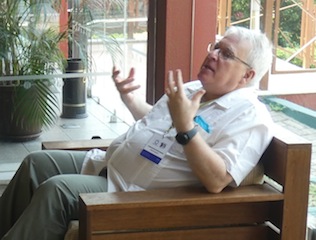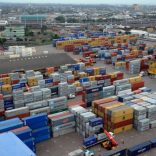Mozambique: Over 18,000 “ghost workers” found in public service
“Employment can be very poorly paid; employment can create poverty ”

Photo: A Verdade
The Mozambican government claims to have created 1.6 million jobs since 2015, and in the next five years, if re-elected, Filipe Nyusi promises to create another three million jobs.
“I think there is an extraordinary coincidence that the number of jobs created under this mandate is exactly what was planned,” said Carlos Nuno Castel-Branco in an interview with @Verdade. In agriculture, for example, “Employment can be hvery poorly paid; employment can create poverty.”
The Executive proposed in 2015 to create 1.5 million jobs to meet the demands of the more than 300,000 new young people who reach the economically active age each year. In fact, the Balance of the Economic and Social Plan of the 1st semester of this year indicates that the goal has been exceeded, with 1,667,268 jobs reported as having been created.
Asked by @Verdade about this promise, Professor of Economics Carlos Nuno Castel-Branco remarks on “the extraordinary coincidence that the number of jobs created in this mandate is exactly what was planned. I think this coincidence is extraordinary, and do not know whether I should congratulate [the government] on their extraordinary aim or if I should have doubts about these numbers. But I have no basis for questioning [them].”
“Are we talking about job creation because it means that we will reduce poverty and improve people’s living conditions?” Castel-Branco asks. “If we are talking about this we have to specify the mechanism whereby employment improves people’s living conditions, and that means the employment conditions. If you do not pay attention to employment conditions, talking about employment is a non-subject.”
“Employment can be very poorly paid; employment can create poverty. There are people who say it is better to work than not to work when, in fact, this is not true. There are many situations where, given employment conditions, job creation makes people poorer. The job itself is neither a problem nor the solution. The question is, what are the conditions of that job?” the Mozambican academic asks.
Wages in agriculture, hunting, forestry, forestry and fisheries increased by only 1,207 meticais over five years
According to Carlos Nuno Castel-Branco: “Employment conditions are not independent of the economy’s profitability conditions. When we are trying to make an economy grow based on a social production organisation whose profitability depends on poor employment conditions, the reproduction of employment conditions are a ‘sine qua non’ for the kind of economic expansion. We can have the economy expanding with bad employment conditions. As with plantations in Mozambique: agricultural, forestry and fisheries sector wages grow the least, and the justification is that these people are in the countryside and producing their own food. ”
“What is happening is that people need this breadth of survival in order to reproduce themselves as a social group. What is called the informal economy, family farming, is in fact capital-making activity, without which capital goes into crisis. If it were not for this activity, it would be necessary to raise wages, or there would be a social explosion. And raising wages without changing the conditions of profitability would create problems for companies,” Professor Castel-Branco explained to @Verdade.
Castel-Branco also argued that “one of the classic problems is monoculture” with seasonal work. “There is a fixed group that works all year long, but a large mass of workers work only two to three months a year. Even if the salary was high – [if it were to be] spread over the months that [these people] don’t work – it is the same thing. This does not create an organised and productive workforce and, on the other hand, it makes it very difficult to organize the labour force against employment conditions, which is in the interest of capital. So employment does not reduce poverty. These people will always be involved in this confrontation between going to work on the plantation or looking for other things because the plantation only guarantees employment 3 months a year. ”
The government has admitted that most of the jobs it has created are in the most precarious and worst paid sectors: agriculture, hunting, forests, forestry and fisheries. In 2015 the minimum wage in the sector was 3,183 meticais, and by 2019 it had grown to only 4,390 meticais.
In addition, the 1.6 million new jobs the government claims to have created are not reflected in the increase in decent jobs in Mozambique. Official data from the Ministry of Labour, Employment and Social Security indicate that during the five-year period, only 48,869 new taxpayers and 430,566 employees were enrolled in the compulsory social security system, or only about a third of all jobs the government claims to have created.
By Adérito Caldeira













Leave a Reply
Be the First to Comment!
You must be logged in to post a comment.
You must be logged in to post a comment.